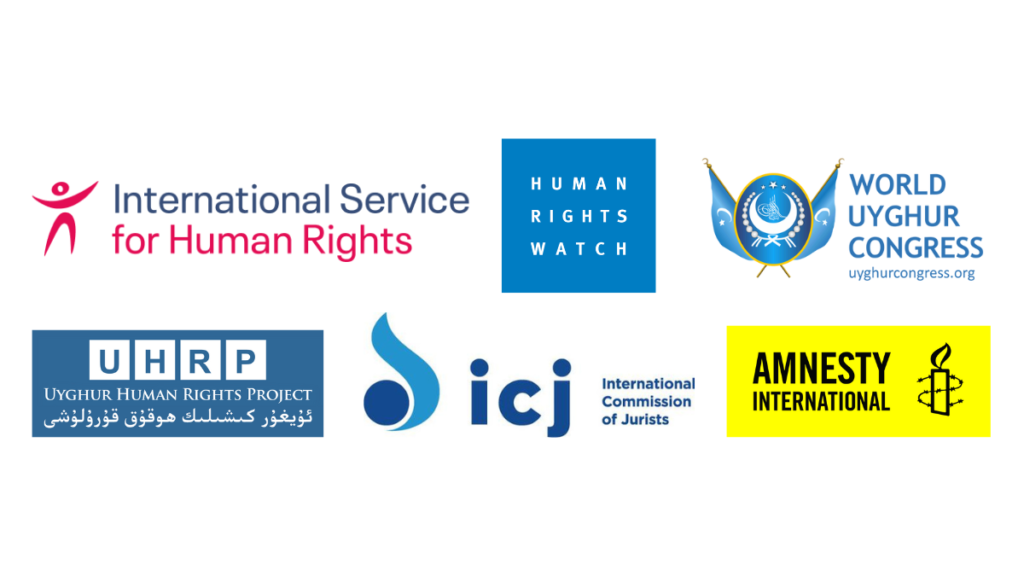OHCHR assessment of human rights concerns in the Uyghur region must spur action at the Council’s 51st Session

To Members and Observers of the UN Human Rights Council: OHCHR assessment of human rights concerns in the Uyghur region must spur action at the Council’s 51st Session
September 14, 2022
On August 31, the Office of the UN High Commissioner for Human Rights published its long-awaited assessment of the human rights situation in the Xinjiang Uyghur Autonomous Region (Uyghur Region). This report comes after years of work by the Office and, despite criticism for its delay, has been welcomed by Uyghur groups and survivors worldwide as an essential first step toward accountability.
It is now your responsibility, as members and observers of the Human Rights Council, the UN’s top human rights body, to respond to the OHCHR’s findings with tangible action.
The evidence laid out in this report details the way in which Chinese government policies cast individuals and communities as “extremist” – and therefore in need of “re-education”. The report notes that “broad interpretations of ‘extremism’, often explicitly targeting standard tenets of Islamic religion in practice” lead to an environment in which “religious or cultural practice or expression is conflated with ‘extremism’”. As a result, Chinese laws and policies are being used to target Uyghurs and other Turkic Muslims for “manifestations… of nothing more or less than personal choice in the practice of Islamic religious beliefs and/or legitimate expression of opinion”.
The OHCHR summarizes its legal overview by noting that “in the context in which this [anti-terrorism law] system is implemented, it also carries an inherent risk of unnecessary, disproportionate and discriminatory application to the ethnic and religious communities concerned”.
The report concludes that the extent of these abuses “may constitute international crimes, in particular crimes against humanity”. As conditions in the region remain conducive for such violations “to continue and recur”, the situation requires “urgent attention by the United Nations intergovernmental bodies and human rights system.”
The report grounds this conclusion in the meticulous documentation of widespread abuses, including arbitrary detention, an absence of due process, torture and ill-treatment, involuntary medical treatment and sexual violence in the context of what Chinese officials euphemistically call “vocational education and training centres”, or “VETCs”. It bears noting that despite OHCHR’s requests, China refused to provide any curriculum for this so-called “education and training”; individuals interviewed for the report recalled being “forced to sing patriotic song after patriotic song every day, as loud as possible and until it hurts, until our faces become red and our veins appeared on our face”.
The report also notes concerns with the situation throughout the Uyghur Region, including the destruction of Islamic religious sites, limits on linguistic rights of minorities, mass surveillance online and off, and violations of reproductive rights of Uyghur women, including forced birth control. It addresses credible allegations of forced labour; family separation, including as a result of enforced disappearance; and intimidation, threats and reprisals against individuals seeking information about their loved ones, or publicly sharing their personal experience in the “VETCs”.
Despite the High Commissioner’s emphasis on cooperation, including during her country visit, this has since been thoroughly rejected by the Chinese government. Chinese officials have sought to undermine the mandate given to her Office by the UN General Assembly and stated on 9 September that – rather than discussing the report’s findings on their merits – they would “close the door” to cooperation to address the violations.
This illustrates that the Chinese government is only willing to “cooperate” with those who embrace its false narrative while turning a blind eye to possible crimes against humanity. Chinese officials’ blanket denials and attacks on the Office, its experts and its leadership stand in stark contrast to the objective, detailed analysis of the OHCHR – which is grounded in China’s own laws and policies, as well as wrenching first-person testimony.
The UN Human Rights Council and UN member states have not yet taken meaningful steps to address the abuses and violations that occurred and that are ongoing in the region.
As the 51st session of the Human Rights Council opens, we urge your government to:
- Ensure that the UN Human Rights Council, according to your respective commitments and widely-accepted ‘objective criteria’, takes urgent action to place the situation in the Uyghur Region on the Council’s agenda; and
- Take immediate, concrete steps to advance accountability, including by mandating an independent international investigation into human rights violations against Uyghurs, Kazakhs and other primarily Muslim ethnic minority groups in the People’s Republic of China, grounded in the OHCHR assessment report’s findings and in the structural and systemic challenges outlined by UN Special Procedures.
It is necessary that urgent and tangible action is taken at the Council, and beyond, to hold the perpetrators accountable and to offer some measure of justice to the victims and their families.
Sincerely,
Amnesty International
Human Rights Watch
International Commission of Jurists
International Service for Human Rights
Uyghur Human Rights Project
World Uyghur Congress
